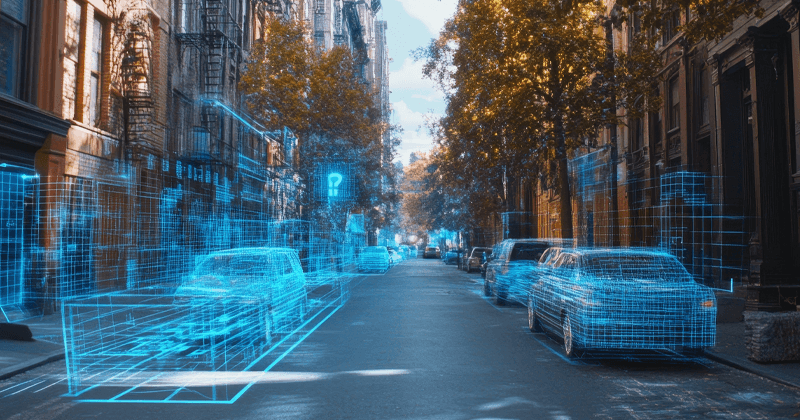

Artificial Intelligence (AI) is often thought of as a solution that can instantly solve complex problems. However, AI doesn’t magically generate answers out of thin air—it requires vast amounts of high-quality data to be trained effectively. In the context of urban and campus parking management, AI can be a game-changer, but only if there is access to the right data sources.
There’s a lot of hype and misinformation around what AI is and what it can do. AI is a very broad term, so broad that it can become meaningless unless you apply it to a specific citation. But one thing everyone can agree on is that the reason to use AI is to efficiently solve problems and get desired outcomes. AI is basically computer software that provides insights and suggests actions. It works within other software tools that you use to make work more efficient and can help to make better decisions leading to better outcomes. No disruption or added complexity, just smarter support within your existing workflow.
AI is not a replacement for human intelligence, it does not operate autonomously, it is not free from bias introduced from how it was trained (more about that later) and it is not infallible.
Understanding this can really help when trying to assess claims that are made regarding a software product’s capabilities, particularly ‘AI’ products.
AI systems rely on extensive training to recognize patterns and make informed recommendations. This training is done by providing lots and lots of data to the AI model, which is basically the computer program that will be used to perform tasks or make predictions and recommendations without specific human instruction. As the saying goes, ‘Garbage in, garbage out’. If the model is provided with data that is not truly representative of the real-world situation, patterns will be incorrectly identified and the recommendations made will not yield the desired outcomes.
The problem you are trying to solve dictates the quality of the data set required. Assuming that data is collected in a consistent format and follows the same rules across different sources, there are four questions to ask to determine if you have a high-quality data set:
The evolution of AI in parking management is dependent on the availability of robust data sets. Until cities invest in comprehensive data collection methods, AI solutions will struggle to deliver their full potential. With improved data sources and smarter integration, AI will play a critical role in minimizing revenue loss, improving compliance rates, and enhancing overall urban mobility.
AI is not a silver bullet, but with the right data infrastructure in place, it can transform the way cities manage parking compliance, making enforcement more efficient and effective.